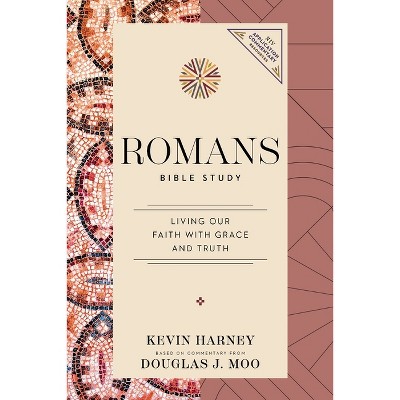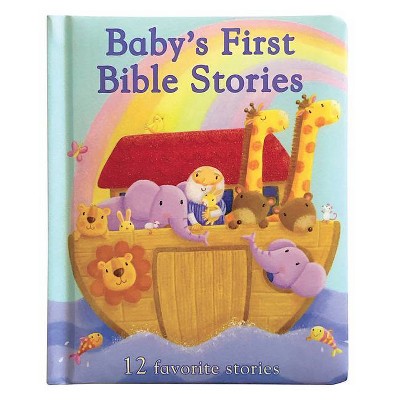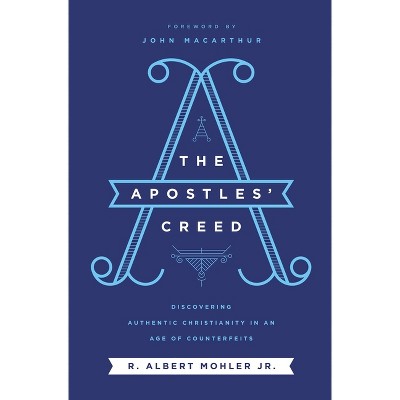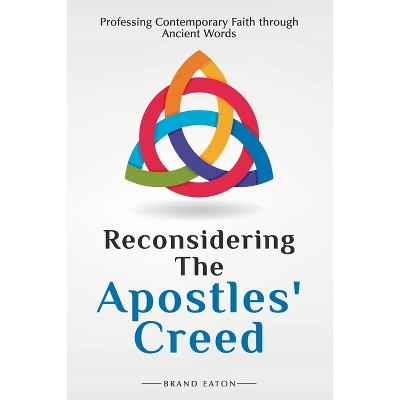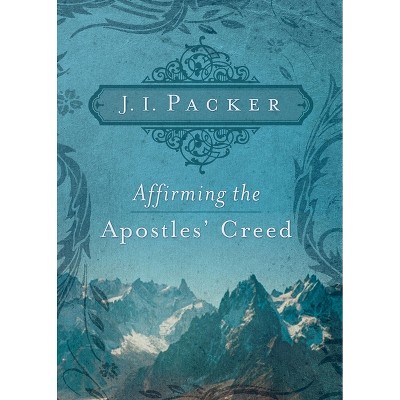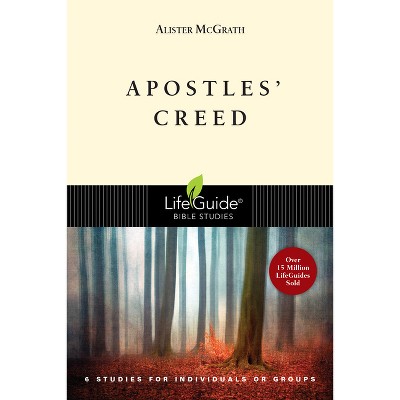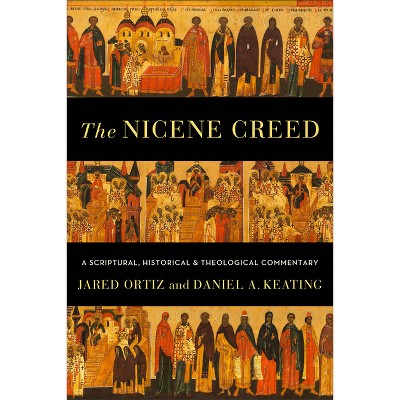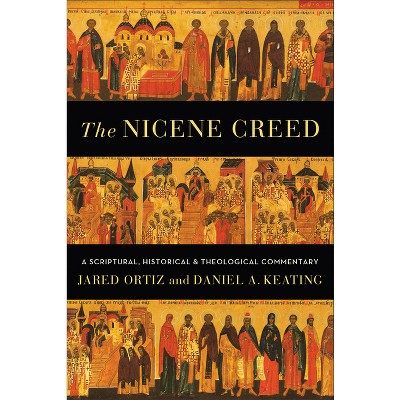Sponsored

The Apostles' Creed - by Piotr Ashwin-Siejkowski (Paperback)
$34.95
In Stock
Eligible for registries and wish lists
Sponsored
About this item
Highlights
- The Apostles' Creed is an expression of Christian theology that was formed in a period of fascinating and creative debate.
- About the Author: The Revd Dr Piotr Ashwin-Siejkowski is a priest of the Church of England and Assistant Lecturer for Patristics at the University of Chichester, UK.
- 208 Pages
- Religion + Beliefs, Christian Theology
Description
About the Book
The Creed is not simply a dogmatic, static and cryptic symbol of Christian faith, but, on the contrary, a lively narrative that can still inspire imagination, critical reflection and faith.Book Synopsis
The Apostles' Creed is an expression of Christian theology that was formed in a period of fascinating and creative debate. The creed is not simply a dogmatic, static, and cryptic symbol of Christian faith, but, on the contrary, a lively narrative that can still inspire imagination, critical reflection, and faith.In The Apostle's Creed, the ancient debates that led to the formulation of its twelve pronouncements are examined. The richness of early Christian thought is explored by looking at the ideas behind each creedal pronouncement and tracing the theological debates that inspired each statement. Early Christian theology is not treated as 'unanimous, ' but as pluralistic. The polyphony of theological opinion, which characterized the Christianity of this period, is therefore highlighted and celebrated.
In explaining the context that gave birth to the creed, this study refers to the testimony of various 'witnesses' of those theological arguments. This includes opponents of the apostolic and church Fathers: the Gnostics, 'heretics, ' and Jewish and pagan critics of Christian faith.
Review Quotes
'Although not the oldest, the Apostles Creed is the most accessible of the ancient Christian creeds. Piotr Ashwin-Siejkowski, a parish priest who teaches early Christian doctrine at the University of Chichester, offers his readers a sympathetic and critically informed account of this creed, and of the faith claims that it makes. By explaining the sometimes perplexing doctrinal debates out of which these statements of faith emerged, and by introducing the wider and often alien historical contexts in which they arose, he reminds his readers of the differences between the ancient and contemporary worlds, and raises questions about how best these ancient theological claims should be appropriated and articulated today.' - Andrew Gregory, University College, Oxford, UK.
'This is a valuable book on a creed that has been rather neglected by scholars in the latter half of the twentieth century. Its value lies particularly in the way it seeks to illuminate its earliest context, namely the first three centuries. Although the author admits the relative lateness of the emergence of the Creed (8th century), he rightly argues that its core goes back much earlier, to the Old Roman Creed of the third century, and thus his approach seems eminently defensible. He examines each clause of the Creed in a separate chapter, considering the context, pagan, Jewish and alternative Christian. Here he is able to make good use of twentieth century discoveries of and recent scholarship on ancient manuscripts such as the Nag Hammadi library, to reveal the variety of early Christianity and present alternative theological views, such as those of the so-called 'Gnostics', in a much fuller and satisfactory way than earlier treatments. Thus there are valuable and nuanced treatments of various early perspectives on e.g. the Holy Spirit and Mary and on Jesus's descent into hell and ascension and on the resurrection of the flesh. The theological analysis and reflection are of a high order, while presented in a way that is accessible to lay people. This is aided by a useful Glossary of theologians, early Christian documents and theological terms. The author's concluding reflections on the continuing relevance of the creeds, particularly his appeal to approach them as icons rather than idols, are very pertinent but ought to have been developed at greater length and in greater depth. There's useful section on internet resources and the Select Bibliography is just that, if one could argue with it.' - Alastair H.B. Logan, University of Exeter, UK
'Those ancient Christians were people passionate about God and our relationship with the divine'. That statement by the author is true for his own passion about Christian doctrine and early church history. Piotr Ashwin-Siejkowski writes for students, parishioners, and a wider group of readers; accordingly he provides an introduction to the theology of the Apostles' Creed and its terminology, supported by notes to introductory articles and a glossary to help beginners. The book could be the basis of church classes for members or catechetical instruction (as the creed was in its origin) in preparation for baptism or confirmation. It is not a history of the creed but a commentary on its contents. The author reminds us that Christianity has an intellectual content and is much more than an emotional adherence to Jesus. His abundant references to second and third-century Christian authors result in a systematic summary of basic Christian theology. The author sets the 'proto-orthodox' thinkers over against pagan, Jewish, and heretical views on each topic. It is helpful to put the affirmations of the Apostles' Creed in contrast to alternative theologies of the time and to see the confession in comparison to early orthodox affirmations, but the author goes further in offering a way of seeing the contemporary relevance of the creed. Readers may disagree on particular points, but they can learn from the author's wide acquaintance with early Christian writings.' - Everett Ferguson, Abilene Christian University, Abilene, Texas, USA
About the Author
The Revd Dr Piotr Ashwin-Siejkowski is a priest of the Church of England and Assistant Lecturer for Patristics at the University of Chichester, UK. His academic research is focused on various theological schools in late Hellenistic Alexandria. His publications include "Clement of Alexandria. A Project of Christian Perfection" (2008)."
Dimensions (Overall): 8.4 Inches (H) x 5.4 Inches (W) x .6 Inches (D)
Weight: .55 Pounds
Suggested Age: 22 Years and Up
Number of Pages: 208
Genre: Religion + Beliefs
Sub-Genre: Christian Theology
Publisher: Bloomsbury Publishing PLC
Theme: History
Format: Paperback
Author: Piotr Ashwin-Siejkowski
Language: English
Street Date: July 1, 2009
TCIN: 94487707
UPC: 9780567328212
Item Number (DPCI): 247-03-7762
Origin: Made in the USA or Imported
If the item details aren’t accurate or complete, we want to know about it.
Shipping details
Estimated ship dimensions: 0.6 inches length x 5.4 inches width x 8.4 inches height
Estimated ship weight: 0.55 pounds
We regret that this item cannot be shipped to PO Boxes.
This item cannot be shipped to the following locations: American Samoa (see also separate entry under AS), Guam (see also separate entry under GU), Northern Mariana Islands, Puerto Rico (see also separate entry under PR), United States Minor Outlying Islands, Virgin Islands, U.S., APO/FPO
Return details
This item can be returned to any Target store or Target.com.
This item must be returned within 90 days of the date it was purchased in store, shipped, delivered by a Shipt shopper, or made ready for pickup.
See the return policy for complete information.
Frequently bought together

$10.38 - $23.82
was $18.00 - $38.00 New lower price
4.6 out of 5 stars with 193 ratings
